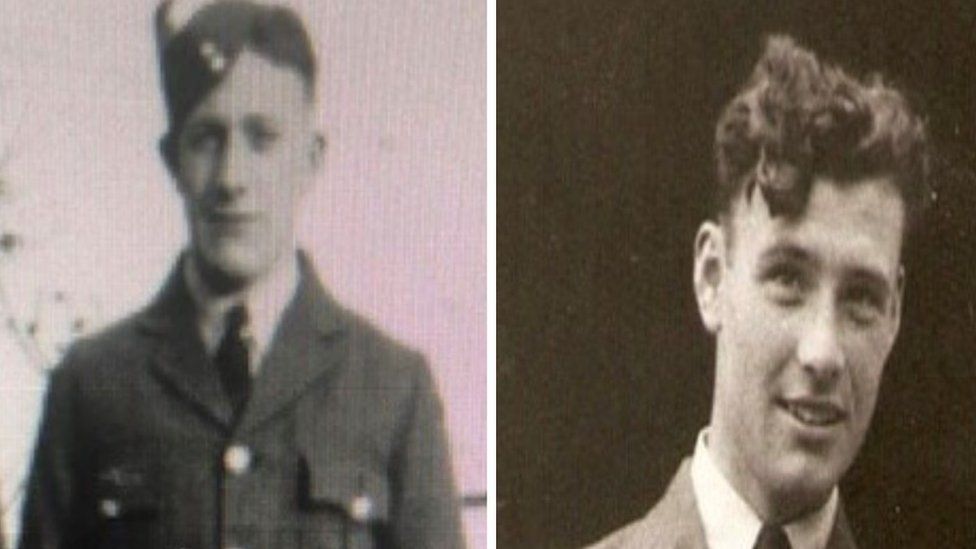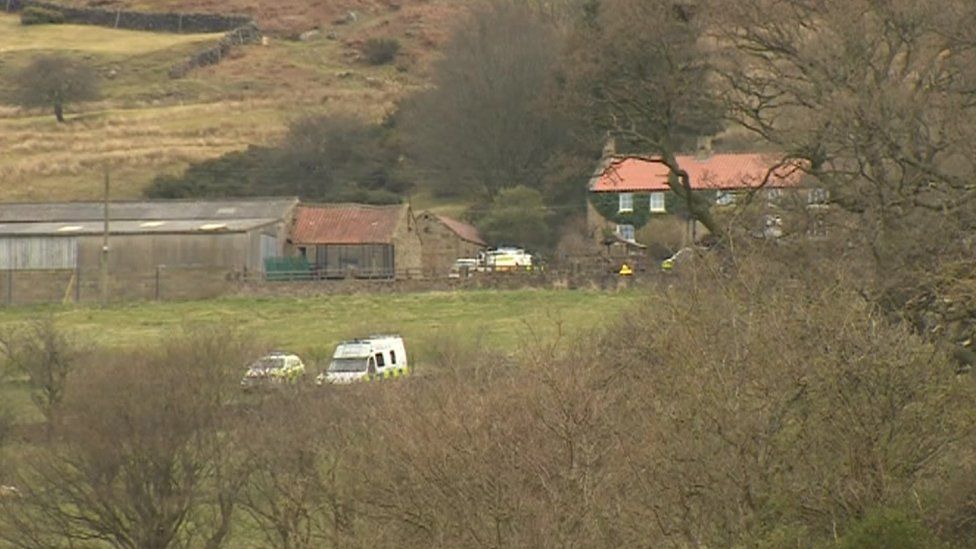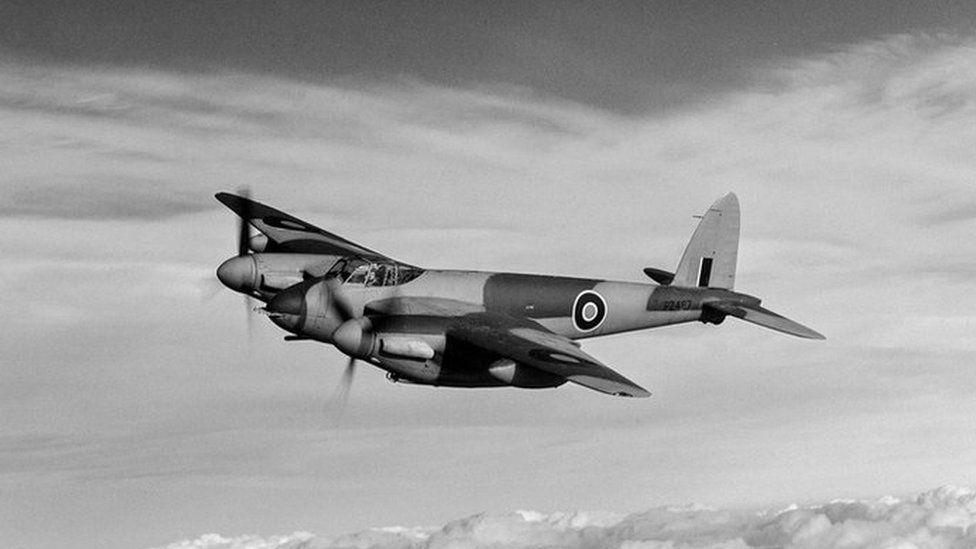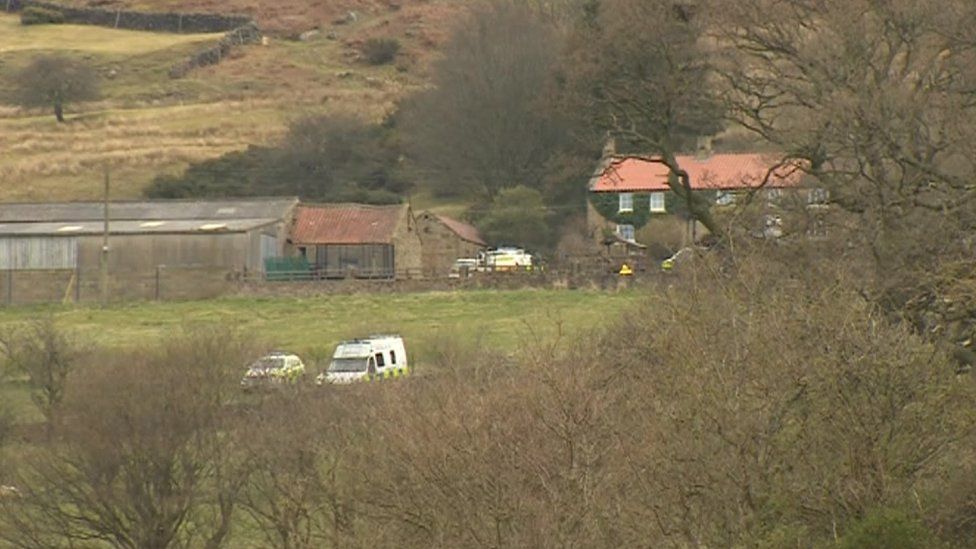 North Yorkshire Police
North Yorkshire PoliceThe remains of two World War Two airmen whose plane crashed during a secret mission were found 76 years later by a family investigating a blocked septic tank, an inquest heard.
Bone fragments from Pilot Officer Alfred Milne and Sgt Eric Stubbs, who died in 1944, were found on the North York Moors in March 2020.
The discovery sparked a joint police and MoD investigation.
The men were identified by forensic experts and DNA matches.
The inquest, held in Northallerton, heard how the family from Chop Gate, near Helmsley, went into a next door paddock to check their shared septic tank, when they spotted a bone.
One of them, a medical professional, recognised it as a human jawbone and called police.
Officers found bone fragments spread across the field with forensic experts later identifying tell-tale green staining, thought to have been caused by the copper in brass aircraft fittings or helmet straps, as well as dental work used by the RAF.

Samples of DNA were taken from Sgt Stubbs’ nephew David Peterson and a cousin of PO Milne to confirm their identities.
PO Milne and navigator Sgt Stubbs, both 22, were on a secret flight from RAF Beccles in Suffolk to Turnberry in Ayrshire when their plane went down.
Their de Havilland Mosquito was carrying a Barnes Wallis-designed Highball, a smaller version of a bouncing bomb to be used on shipping.
The plane was originally thought to have crashed when, flying in low visibility, the pilot spotted high ground too late.
But coroner Richard Watson heard a young farm worker nearby had witnessed the engines sputtering before the crash, suggesting a mechanical failure or shortage of fuel.
Ken Luck told local military historian Richard Allenby what he had seen when the Mosquito was destroyed on 11 October 1944.
Mr Luck, then a young man, watched the plane’s nose dip before it crashed into the hillside and saw the bomb roll down the hillside into the farm’s orchard. Had it exploded, it would have destroyed the farmhouse and a swathe of Bransdale.

After the crash the two men’s bodies were recovered and buried, but wartime procedures meant inquests were not held.
Mr Watson said the men’s remains had now been buried in the south of England with full military honours.
Reaching a conclusion of accidental death, he said: “It’s 77 years since the end of the Second World War, and 78 years since this incident. This year would have been Sgt Stubbs’ centennial, and PO Milne’s would have been last year.
“This is a timely reminder to us all of those young men who made the supreme sacrifice during those difficult times, and it’s a reminder of the cost of war.”
When the remains were first found in March 2020, a 72-year-old man was arrested in connection with the discovery.
North Yorkshire Police later said the investigation had concluded without any charges being brought against the man.
The Crown Prosecution Service had determined there was not enough evidence to pursue suspected offences, the force said.

Follow BBC Yorkshire on Facebook, Twitter and Instagram. Send your story ideas to [email protected].
-
Human bones were RAF airmen killed in 1944 crash
-
3 February

-
-
Man, 72, arrested over human bones found at farm
-
29 April 2020

-
Related Internet Links
-
yorkshire-aircraft.co.uk
